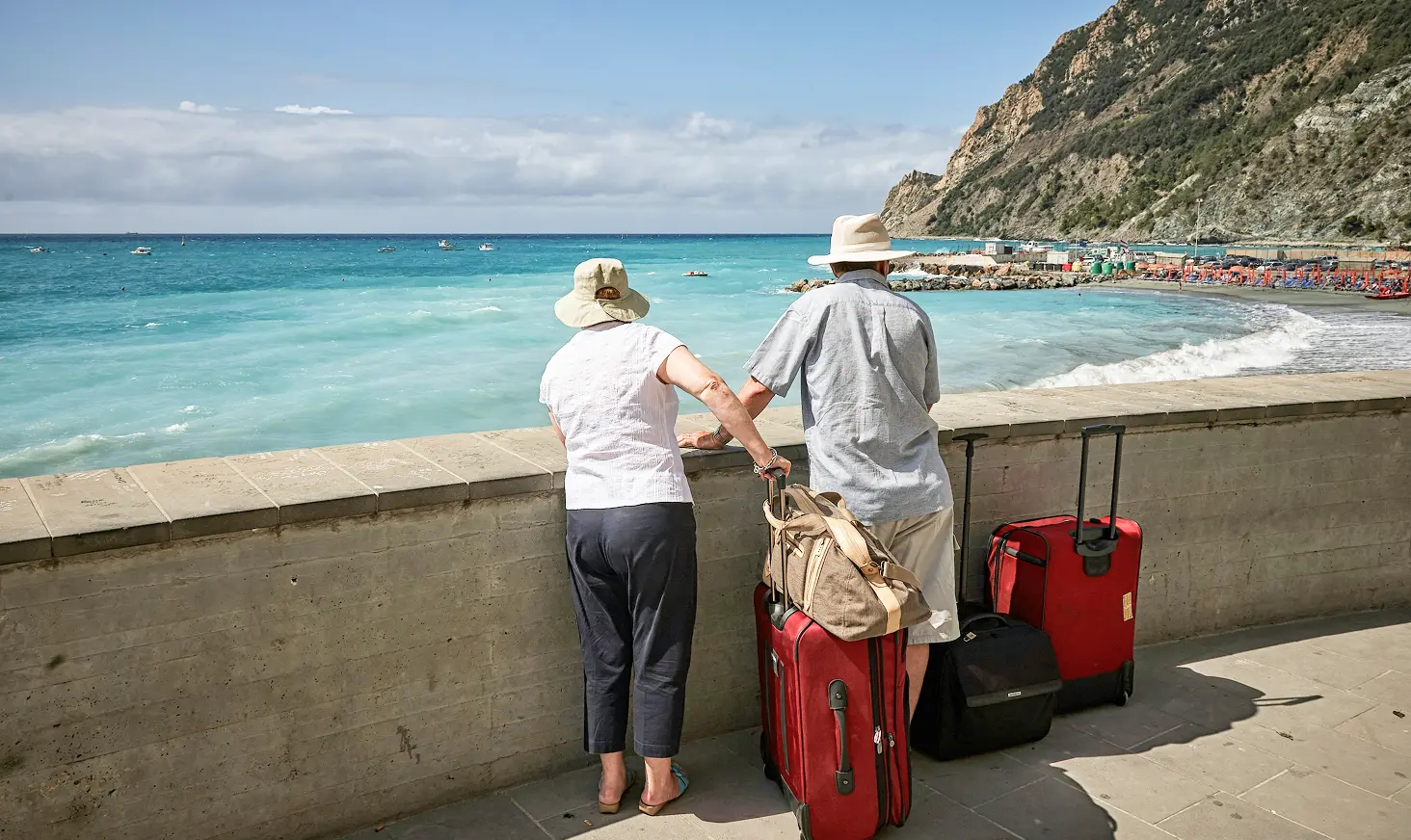Where It’s Easiest to Buy Property in Europe Right Now
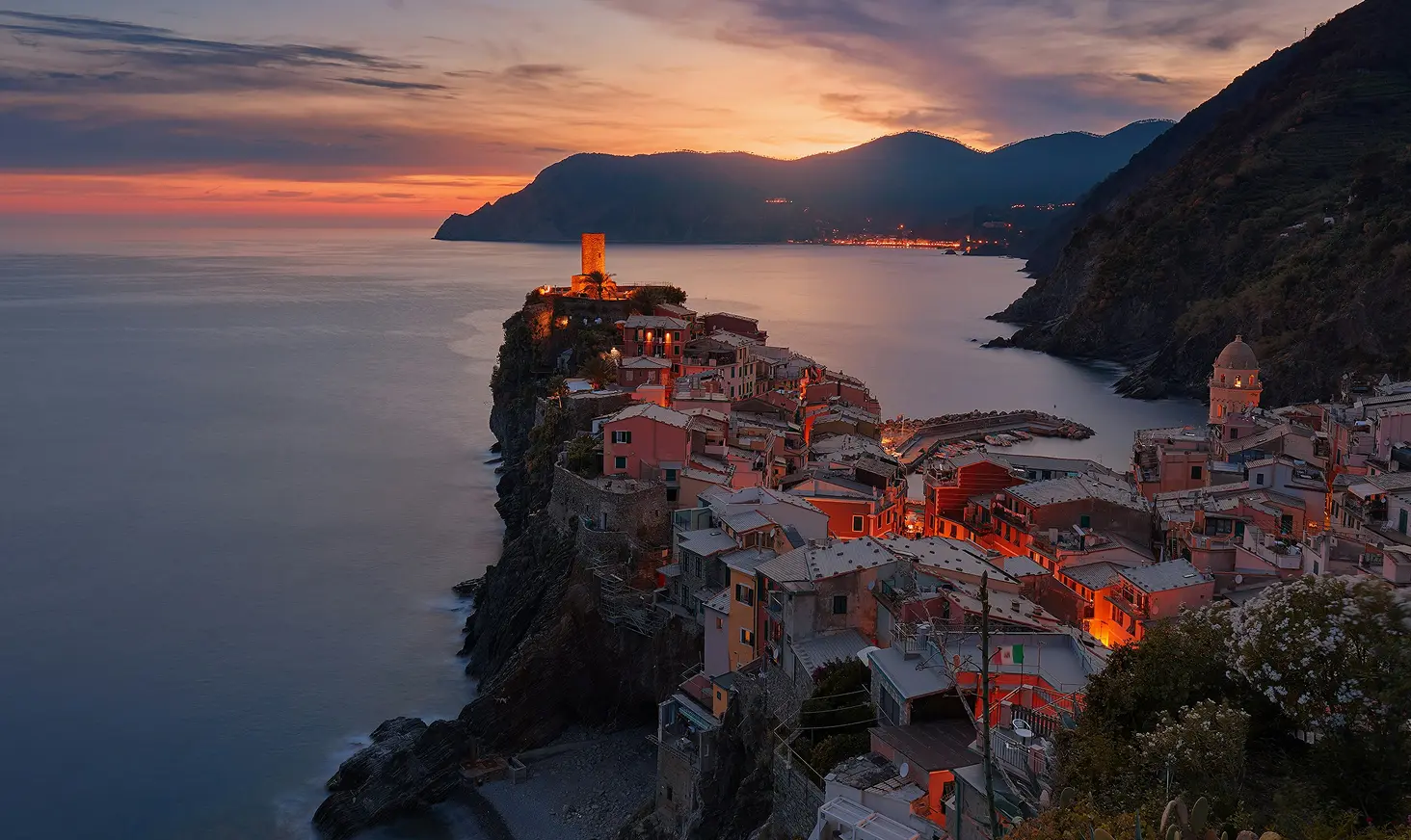
Buying property in Europe may sound complicated if you don’t live there. It’s far away, the regulations are different, you don’t know what to look for. But, right now, it is easier than ever. Europe offers affordability, quality of life, and pretty straightforward ownership laws that appeal to investors, retirees, digital nomads, and expats alike.
But which country is the best in Europe and offers the easiest road to buying a property?
For example, Portugal and Greece have streamlined processes and residency programs that remove barriers for international buyers. Others promise affordable homes but hide bureaucratic hurdles. Knowing where you can find hassle-free homeownership can be the difference between a rewarding investment and a headache.
Why Buying a House in Europe Is Getting More Popular
More people are looking at buying a house in Europe to improve their lifestyle, and as a way to create some stability. High housing costs back home, inflation, and political uncertainty are pushing buyers to look outward. And you don’t get just a vacation home. You can live better for less. In parts of Portugal, €150,000 still gets you a move-in-ready home in a small town, with low property tax, no HOA fees, and public transport close by.
In Hungary, you can find studio apartments in the capital for under €100,000 and live close to the metro line and markets, and also have universal healthcare. And affordability is just a part of it. Ownership rules in much of Europe don’t block foreigners from buying. You can own the property outright in your name. The main obstacles are language and paperwork, not legal restrictions.
There’s also long-term value. In some areas, prices are still catching up to demand, specifically in places where tourism is growing or where remote work improves local economies. Buying a house in Europe today can be as much about the future as it is about current comfort.
What Makes a Country Easy to Buy Property In?
Europe is full of great places to live, but not every country makes it easy to buy. If you’re comparing options, the simplest way to narrow things down is to look at three things: how straightforward the legal process is, how much bureaucracy you’re dealing with as a foreigner, and how affordable the housing market actually is.
The easiest country to buy a house in Europe usually has clear property laws, no restrictions on foreign ownership, and a process you can complete without jumping through endless hoops. Some countries, like Portugal or Hungary, don’t require any residency status to own property. Others, Spain, for example, don’t stop you from buying, but the paperwork is more complicated. Then there’s cost.
Even if the process is simple, if the entry price is €500,000, it’s only easy for a very specific group of buyers. That’s why countries like Greece, Bulgaria, and parts of Italy get more attention: property prices are low enough that you don’t need to be wealthy to enter the market. The third factor is tax and long-term ownership.
Some countries have heavy transfer taxes or ongoing wealth taxes for non-residents. Others, like Cyprus or Georgia, keep things relatively low and predictable. So you also need to know what it costs to keep the home year after year.
Let’s see how affordable buying a house in Europe is:
A place might look easy on paper, but small barriers, like needing a local tax number, delays with land registries, or rules on wiring money from abroad, can add weeks or months. If you’re planning to buy a house in Europe this year, it’s worth looking closely at what the process actually involves in each country, not just the sale price.
The Best Places to Buy Property in Europe Right Now
Some countries make it easy for you. The laws are clear, the fees are predictable, and the prices are within reach. You don’t need to be a millionaire or a citizen, you just need to know where to look. These are places where foreign buyers can complete a purchase without running into major legal or financial obstacles, places where the process of buying a house in Europe works, the rules are clear, and the costs are manageable.
This part of the world still has places where you can own property outright with minimal paperwork, buy in livable towns for under €200,000, and avoid heavy taxes or hidden legal traps. Some of these countries offer simple residency options as a bonus, while others focus more on clean property rights and affordability.
Below are ten countries that stand out right now. Some are ideal for investment, some for relocation, and others for a reliable second home base. What they have in common is that they’re among the best places to buy property in Europe if you’re looking for a smooth path to ownership.
Portugal
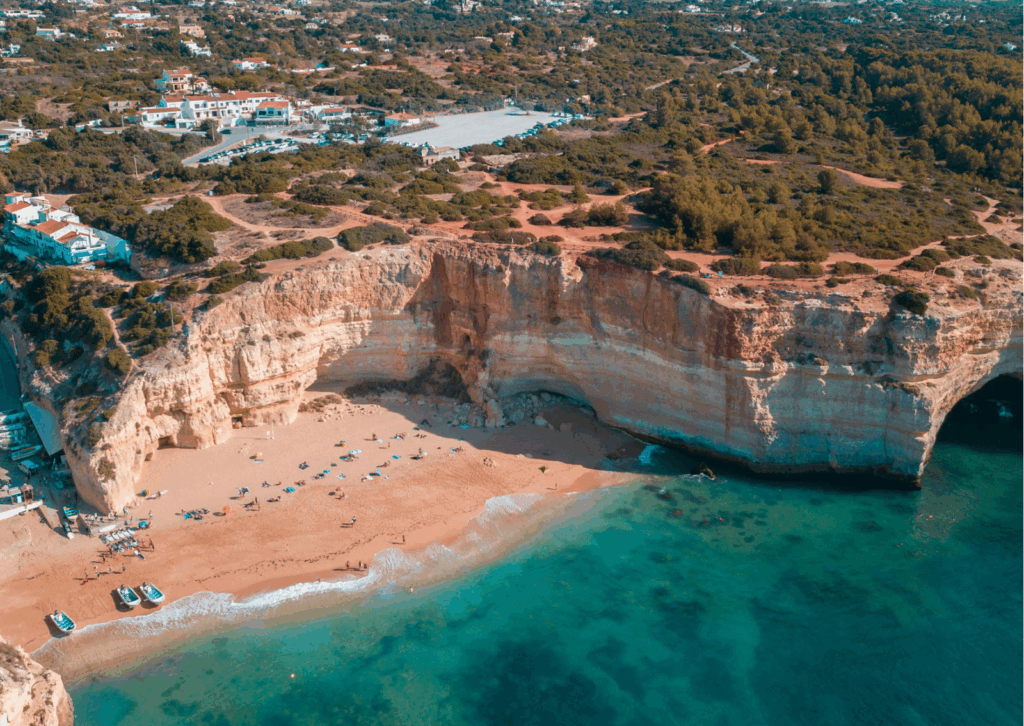
Portugal consistently ranks as one of the best places to buy property in Europe. It has strong property rights, no restrictions on foreign ownership, and a purchase process that’s relatively quick compared to other Western European countries. You don’t need residency to buy, and there’s no requirement to live in the country before or after the purchase. The real estate market is well-developed, with good buyer protections. Most deals go through licensed agents and notaries, and sale agreements are legally binding once signed. You’ll need a Portuguese tax number (NIF), but that can be set up in a day with a local representative.
While Lisbon and Porto have seen price growth in recent years, there are still affordable homes in smaller cities and inland regions. For example, in towns like Castelo Branco or Évora, it’s still possible to find a two-bedroom apartment or village house for under €150,000, although they might need some work. Along the Silver Coast or Alentejo, €200,000-€350,000 can get you a modern home with outdoor space.
Portugal no longer offers residency through property under the Golden Visa, but it still appeals to buyers because of low property taxes, reasonable purchase costs (around 7-8% of the sale price), and the quality of life. If you’re looking for a stable process, low-maintenance ownership, and a country that welcomes international buyers without overcomplicating things, Portugal remains one of the easiest countries to buy a house in Europe.
Greece

Greece is one of the more accessible places to buy a house in Europe, especially if you’re looking for good value and simple ownership laws. Foreigners can purchase property freely, and the process, while a bit paperwork-heavy, is well defined. You’ll need a Greek tax number (AFM) and a local bank account, which a lawyer can arrange for you without much hassle. Once those are set, the process usually starts with a reservation deposit. A lawyer handles due diligence, checking for debts, zoning issues, and proper ownership, before you sign the purchase agreement. Then everything is finalized in front of a notary. The full process usually takes two to three months.
In parts of the Peloponnese, Crete, or inland Thessaly, ~€200.000 can get you a stone house with a garden, often livable with only minor updates. In Athens, modest apartments near public transport start at ~€150,000. On the islands or in high-demand areas like Santorini, prices are higher for houses that don’t require further investments, but you can still get a house that needs some love for €200,000 in Crete. The Golden Visa program is still active and available through property investment, but the minimum has increased to €500,000 in most urban areas. Some less-touristic zones still offer entry at €250,000, though those are narrowing.
Transaction costs, including taxes and fees, typically add 7-10% on top of the purchase price. The annual property tax is low by European standards, and if you don’t rent the place out, you won’t pay income tax. Rental income is taxed on a sliding scale, starting at 15%. Greece continues to be one of the best places to buy property in Europe if you’re looking for full ownership, reasonable prices, and the option to live part-time or full-time without immigration pressure.
Hungary

Hungary is becoming one of the more appealing places to buy a house in Europe, especially if you’re looking for affordable living. As of 2025, EU and EEA citizens can buy property freely; non-EU buyers need a permit, which a lawyer can secure in 30-45 days for about €200. Once you’ve found a home (often within days), you sign a preliminary sales contract, pay a deposit (10-20%), and then wait for the permit. After that, you finalize the purchase, and the land registry transfer takes another few weeks. The full process takes roughly two months.
Costs are low: transfer tax is around 4% of the price, plus notary and lawyer fees that bring total closing expenses to 6-10%. New builds include VAT instead of transfer tax, while resale homes stick with the standard rate. In terms of pricing, Hungary is still much more affordable than Western Europe. Budapest averages around €3,400/m² in the city center, and you can find properties starting around €110,000-120,000 in cities like Debrecen.
Living costs are low. Utilities can run under €130/month, and high-speed internet averages about €20/month. For those planning to rent, Budapest rental yields sit around 5-5.4%, with similar returns in cities like Pécs and Nyíregyháza.
Italy

Italy doesn’t always get credit for being one of the easiest countries to buy a house in Europe, but if you have a good notary and translator, you’re set. Foreigners can buy without restrictions, and you don’t need residency to own. You’ll need a codice fiscale (tax code), which your notary can help obtain. Once you agree on the price, you sign a preliminary contract and pay a deposit (usually 10-20%). The final deed is signed in front of a notary, and the entire process takes 1-2 months.
Prices vary widely. In Tuscany or Milan, property is expensive, but in Sicily, Calabria, or Le Marche, €150,000-€200,000 can still get you a restored home or even a countryside farmhouse. And yes, €1 homes exist, but they often come with major renovation obligations and local residency requirements.
Transaction costs range from 7-10% including taxes and fees. Annual property tax (IMU) is only charged if it’s a second home, and rental income is taxed under a flat-rate regime that many foreign owners use. Italy isn’t the cheapest, but if you’re patient and working with the right team, it offers beautiful properties and a clear path to ownership. All of this makes it a standout option for anyone looking to buy a house in Europe.
Cyprus

Cyprus is a top pick for anyone wanting to buy a house in Europe and secure a stable foothold in the EU. Foreigners can own one or two properties, either houses or apartments, and non‑EU buyers simply need approval from the Council of Ministers, which is usually granted without delay. A typical purchase begins with a reservation contract and deposit, followed by due diligence by your lawyer, checking title, permits, and liens. After signing the main contract, foreign buyers apply for purchase permission. Throughout, your lawyer and real estate agent guide every step. From deposit to handing over the keys, expect this process to take 2-4 months.
Cyprus property prices are rising, but still competitive.
In Nicosia, apartments average around €2,500/m²; coastal cities like Limassol and Paphos range €2,700-3,500/m². Starting at €300,000, you can find either a modern two‑bed apartment or a small villa with sea views. Inland or secondary towns often offer more space, like a three-bedroom home with a yard, for similar budgets.
A major draw is Cyprus’s residency‑by‑investment scheme. Buying real estate valued at €300,000+ plus VAT, and holding it for five years, makes non‑EU buyers eligible for permanent residence. This also opens access to EU healthcare, schools, and living with fewer visa headaches, and after eight years, eventual citizenship if you choose.
Closing costs run around 7-10%, including transfer and VAT on new builds, lawyer fees, and stamp duty. Annual property taxes are low, and rental yields average 5-10%, depending on location. For example, Limassol yields hover around 5.3%, while coastal holiday homes often hit 6-7% during peak months.
If simplicity, reliability, and clear investment returns matter to you, Cyprus checks all the boxes.
Bulgaria
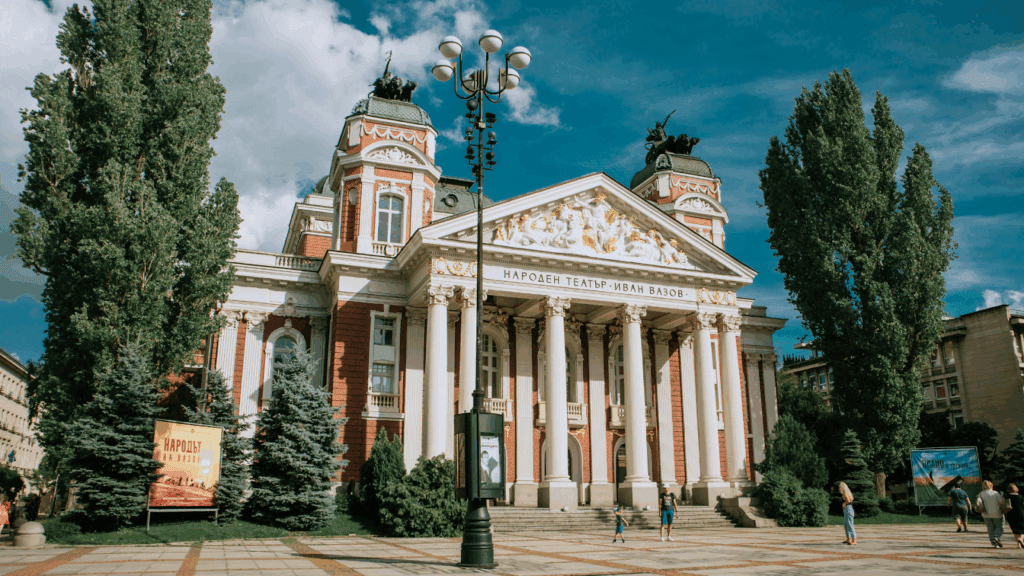
Bulgaria is one of the best places to buy property in Europe if you’re working with a smaller budget. EU citizens can buy property freely. Non-EU buyers can purchase apartments easily, but owning land or houses typically requires setting up a local company. The process is clear: you sign a preliminary contract with a deposit, your lawyer runs the checks, and the final transfer happens through a notary. The whole thing usually wraps up in 6-8 weeks. Transaction costs are low: around 5–10% including transfer tax, legal, and notary fees.
Prices remain among the lowest in Europe. A two-bedroom apartment in Plovdiv or Burgas can cost between €80,000 and €120,000. In smaller towns, houses regularly list for under €50,000. Bulgaria also has residence pathways tied to property. A €300,000 investment can support a long-stay visa, and larger investments open the door to permanent residency.
Taxes are simple: rental income is taxed at 10%, and property tax is low. For buyers looking for value and easy ownership, Bulgaria offers a solid and affordable entry point into buying a house in Europe.
Spain
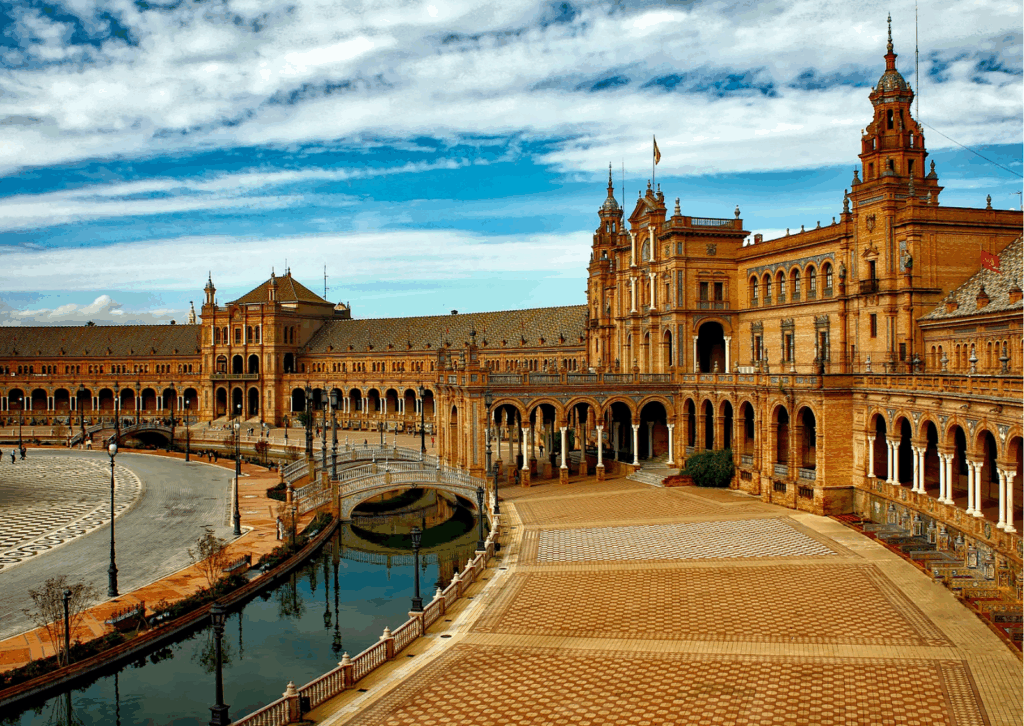
Spain is also one of the most popular countries to buy a house in Europe, and the process is relatively straightforward.
Foreigners can buy property without restrictions. All you need is an NIE (Foreigner Identification Number), which your lawyer or agent can help you get. From there, the buying process follows a familiar pattern: reserve the property, sign a preliminary contract, and finalize at the notary. Most deals close within two to three months.
Prices vary a lot by region. Madrid and Barcelona are expensive, but places like Valencia, Alicante, and parts of Andalusia still offer good value. In coastal towns, €180,000-€270,000 is enough for a two-bedroom apartment near the beach. Inland or smaller cities often come in well under €100,000.
Transaction costs typically add 10-13% to the purchase price, including taxes, notary, and legal fees. Spain used to offer a Golden Visa through property, but that ended in April 2025. Now, buying real estate doesn’t grant residency, but it’s still a great investment. What Spain does offer is legal stability, excellent infrastructure, and a market where it’s easy to find rental demand or just enjoy the property part-time.
Georgia
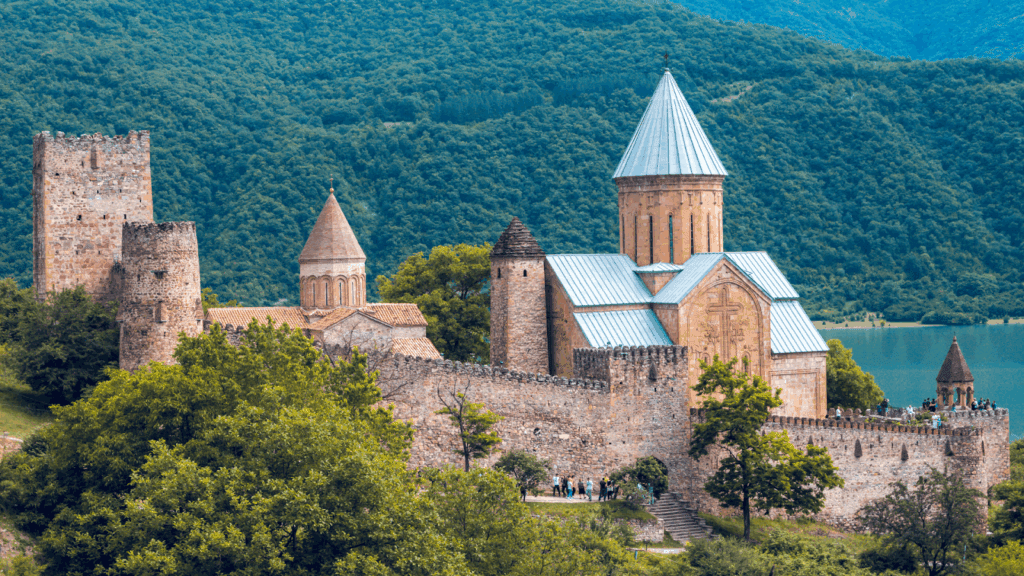
Georgia is easily one of the most foreigner-friendly countries to buy a house in Europe, even if it sits on the edge of the continent. The property market is open to all nationalities, and the process is fast, simple, and low-cost. You can buy residential or commercial property outright (just not agricultural land) without needing residency.
After signing a sale agreement, title transfer can be completed in as little as one day. Legal and registration fees are minimal, usually under 1% of the purchase price. A local tax number is required, but easy to obtain. Prices are still low. In Tbilisi and Batumi, modern apartments range from €1,100-1,400/m². €100,000 often covers a central one-bedroom in the capital or a new build near the beach.
Georgia also offers a clear incentive: if you invest at least $100,000 in real estate, you’re eligible for a one-year renewable residence permit. After five years of continuous stay, permanent residency becomes possible. Annual property taxes are low, and rental income is taxed at a flat 5%. There’s no capital gains tax if you sell after two years.
Montenegro
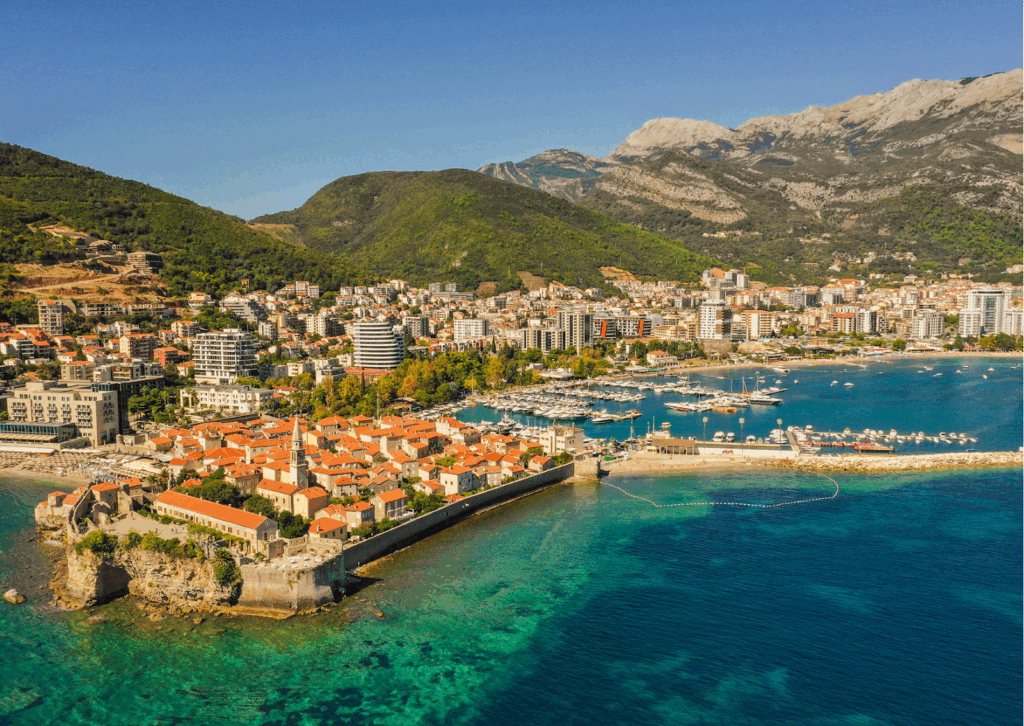
If you want that Mediterranean lifestyle, Montenegro takes the cake as one of the easiest countries to buy a house in Europe. Foreigners have no restrictions on buying apartments or homes, and the process is largely clear and fast.
You start by reserving the property with a deposit, then your attorney handles title checks and prepares contracts. The final deed is signed before a public notary, and registration in the land book usually completes within 4-6 weeks. Legal and notary fees, plus transfer tax, generally add another 5-8% to the purchase price.
Prices are competitive: in coastal towns like Bar or Tivat, expect around €2,000-3,500/m², while inland cities or mountain areas offer homes for about €1,200-2,000/m². With €150,000-€200,000, you can often buy a renovated two-bedroom apartment near the coast.
Annual property taxes are low, and rental income is taxed at around 9%. While there’s no specific residency-by-investment program tied to property alone, buying can support long-stay visa applications. If you want modest taxes and access to the Adriatic, Montenegro is a solid pick for those buying a house in Europe.
Malta
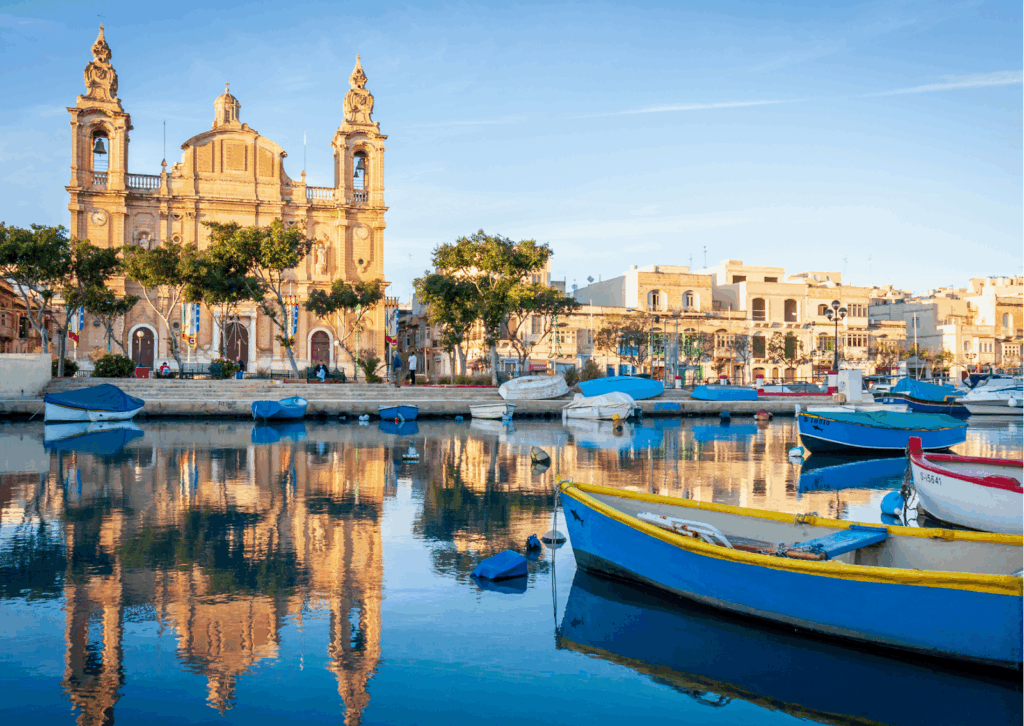
Malta is one of the best places to buy property in Europe if you’re after a secure investment with straightforward rules and lifestyle perks. Non-EU buyers can purchase either in designated areas (SDA) or, with justification, elsewhere, with necessary permits typically issued within a month. The buying process starts with a reservation agreement and deposit; lawyers handle due diligence and preparation of contracts. Final signing occurs before a notary, and registration takes another 6-8 weeks. Overall fees, including stamp duty, notary, registration, and agent costs, typically range between 6–9%.
Property in Malta is pricier: apartments in designated areas start around €300,000, and standalone properties start at €500,000. So, €450,000 can fetch a modern two- or three-bedroom flat in urban centers like Sliema or St. Julian’s. Annual property taxes are modest, and rental income is taxed at a flat rate of 15%. Malta offers a residency-by-investment route: purchasing property worth at least €300,000 (or renting at €10,000/year) qualifies you for the Permanent Residence Programme. That grants EU-like residency rights and access to healthcare, and eventually citizenship by naturalization if conditions are met.
If you want buying a house in Europe to come with some Mediterranean flair, and a transparent path to future residency, Malta hits the mark.
What to Know Before You Buy Property in Europe
Even in the easiest countries to buy a house in Europe, skipping steps or rushing into a deal can lead to expensive problems later. These are the core things to keep in mind before you commit:
Find a Local Lawyer
Don’t rely solely on real estate agents, they often represent the seller, not you. A local lawyer will:
- Check title records for debt or disputes
- Handle contracts in your name
- Make sure you’re not buying into legal trouble
Keep all Costs in Mind
Buying property comes with more than just the listed price. In most European countries, expect:
- 6-13% in additional transaction costs (taxes, notary, legal, agent fees)
- Ongoing annual taxes or maintenance costs, depending on property type and location
Financing Your Property
Mortgages for non-residents exist, but:
- Down payments are higher, usually 30-40%
- Banks often ask for income proof and tax documents from your home country
- Interest rates may be less favorable than for residents
Research Everything
Make sure you understand:
- How the annual property tax works (varies widely by country)
- Rules around renting, especially if you’re considering short-term lets
- What happens with the capital gains tax if you sell later
- Residency and visa implications if you plan to spend long periods there
Bitizenship Can Help with Residency in Portugal
While real estate no longer qualifies for Portugal’s Golden Visa, owning a home is still part of the bigger picture for many people thinking long term. If you plan to live in your property full-time, visit seasonally, or rent it out, pairing it with the right residency strategy gives you options, and that’s where Bitizenship comes in.
If you’re after more than just European citizenship by investment and want that coveted Portuguese lifestyle, we’ve got you. We will guide you through Portugal’s Golden Visa program and help you obtain residency there through investment funds. Our team handles the details: coordinating with the Unbound Fund, managing the legal and financial documents, and working directly with Portuguese legal and tax authorities to keep everything on track.
Homeownership can be a foundation, but the real benefit is access to healthcare, schools, freedom of movement, and eventually a Portuguese passport. Second passport benefits give you long-term stability for you and your family. With Bitizenship, you’re not navigating anything alone.
Final Thoughts
Not every country in Europe makes property ownership easy, but quite a few do. If you want a second home, an investment, or a long-term base, countries like Portugal, Greece, Hungary, and Georgia offer legal clarity, manageable costs, and room to grow. Others, like Italy or Spain, might involve more steps but still give you strong infrastructure, buyer protections, and real long-term value.
If you’re serious about buying a house in Europe, the opportunity is there; you just have to know where to look and what to ask.
